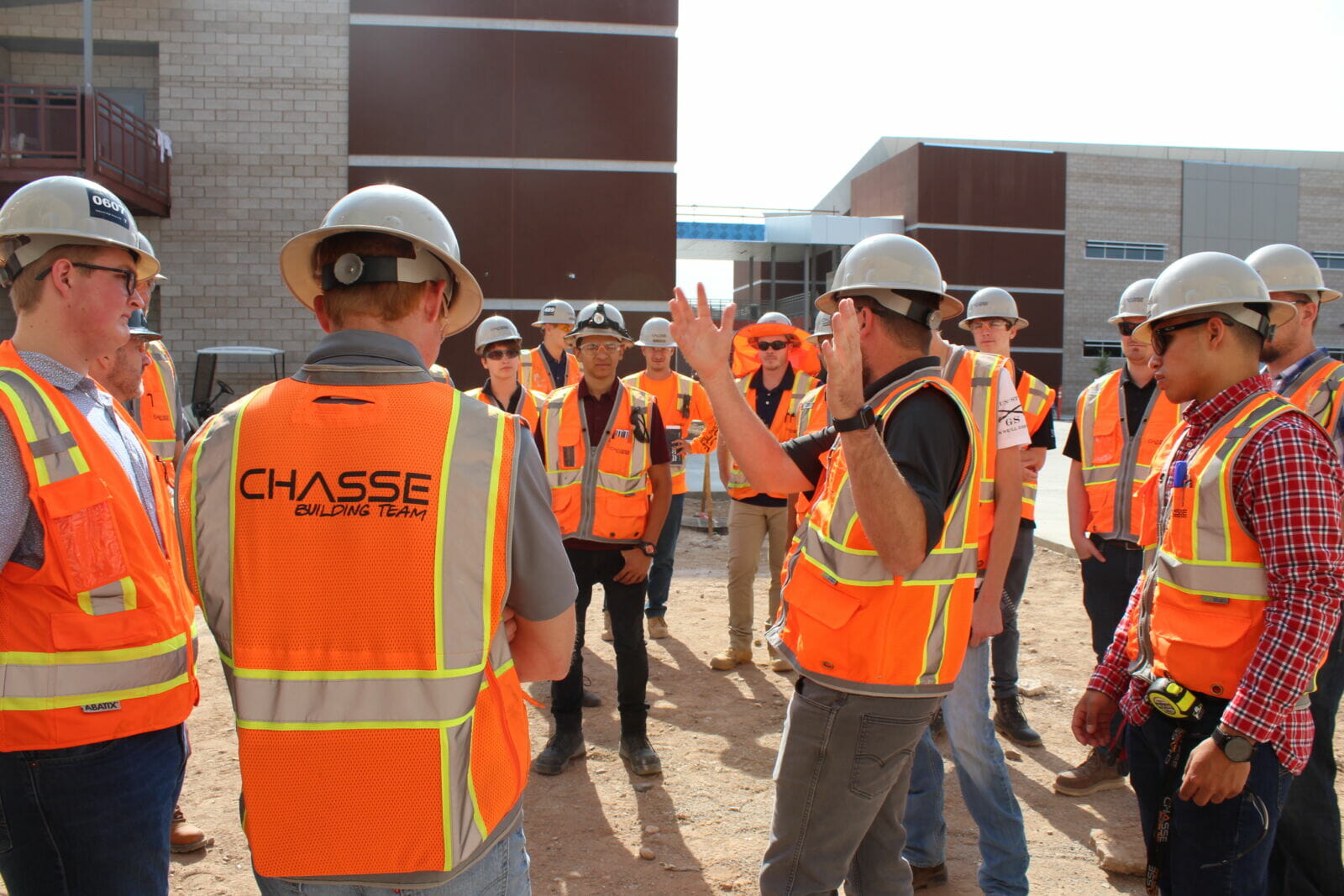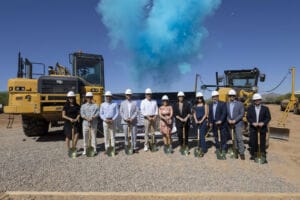For students eager to embark on jobs within the building, construction and commercial real estate industries, it goes without saying that internships are a valuable means to not only attain hands-on experience but also to make critical connections that could lead to long-term career prospects.
READ ALSO: Sharp Construction launches ‘Girls Can Build’ initiative
But what about the benefits to the business itself? Is the investment in formalized internship and mentorship programs worth it in today’s fast-paced climate?
“How many exclamation points can I put after ‘yes’ to that question?” says Jim Gmelich, culture champion at CHASSE Building Team, an employee-owned local general contractor with more than $400 million in Arizona projects annually. “According to the Association of General Contractors, and something we can attest to given our own growth in the past five years alone, finding quality team members and skilled craftspeople are among the biggest challenges facing the industry today.”

To create a direct funnel of talent between classes and their construction projects, CHASSE formalized an internship program in 2008, first just in Phoenix and in more recent years expanded into Tucson as well.
“It has served to support the growth and development of nearly 200 individuals in the local construction industry to date, many whom we’ve hired ourselves,” says Gmelich.
The secret to the program’s success, according to Gmelich, is by being focused not only on modeling, teaching, and talking, but also listening and learning.
“Beyond recruiting, the innovation we have seen directly from those in the program – both students and employees – is off the charts,” says Gmelich.
How it Works
Each summer, approximately May to August, CHASSE recruits as many as 25 students from Arizona State University, Northern Arizona University, University of Arizona and a variety of select schools outside of Arizona where they have a relationship.
“Our students run the gamut, which I think is critical, meaning we have college freshmen, upperclassman, and even those who have returned to school or recently graduated,” says Gmelich.
Another distinction: varied work no matter the niche or focus the student may have.
“After orientation and one-on-one time with a mentor as well as the development of written goals and a blueprint to achieve them, most of our interns will work as field engineers; in preconstruction; and with project managers and directors to really give them the full breath of what we do. Our most advanced interns even work with mentors on budgets and project schedules,” says Gmelich, adding that part of the internship means interacting face-to-face with clients, architects, subcontractors, and other partners. “There is a good balance of getting their hands dirty as well as learning how to interact professionally in an office or meeting setting as well.”
Each intern can expect to work a regular 40-hour week with hours like they would have in the industry, meaning not necessarily 9 to 5.
“We want anyone preparing to enter our industry to have the benefit of time to transition to very different work hours and situations. They need the time to get their internal clocks ready if they want to have success here in the long term, especially in Arizona when early hours might be required due to excessive temperatures,” says Gmelich.
Connectivity
Once into the internship, CHASSE sets up three opportunities to directly connect with leadership in addition to the formal mentorship: round tables, excursions, and capstone presentations.
The round tables, usually three times during the summer, bring all the interns to the Tempe office for a catered lunch, giving each a chance to run through projects they are working on as well as the chance to ask questions, offer feedback, and even provide constructive criticism to their fellow interns. CHASSE also brings in various team members to talk construction A to Z. Everything from development, contracts, and design to schematics, technology and even company culture are on the table for discussion.
“It is an open dialogue, one in which we learn as much as they do,” says Gmelich. “The level of enthusiasm in that room is electric, on both sides of the table.”
There are also regular enrichment excursions; opportunities for the team to have fun together as well as with mentors and leadership. This might include Top Golf, Octane Raceway, group dinners, or even a baseball game.
“While meant to be fun, they also create networking opportunities for interns and our teammates,” says Gmelich.
Finally, there are the end-of-the-internship capstone presentations. A capstone presentation is a formal culminating presentation comprised of both academic and practical learning that summarizes an intern’s time at CHASSE.
“This final element is meant to marry what they’ve learned – both the soft skills and hard skills – with the ability to communicate in effective, efficient, and strategic ways,” says Gmelich. All CHASSE teammates are invited to attend this event, many who learn new tactics and styles as a result.
“To say our internship program has paid dividends would be an understatement. The programs we have in place account for almost 10% of our workforce today,” says Gmelich.
For more information, visit www.chasse.us.




